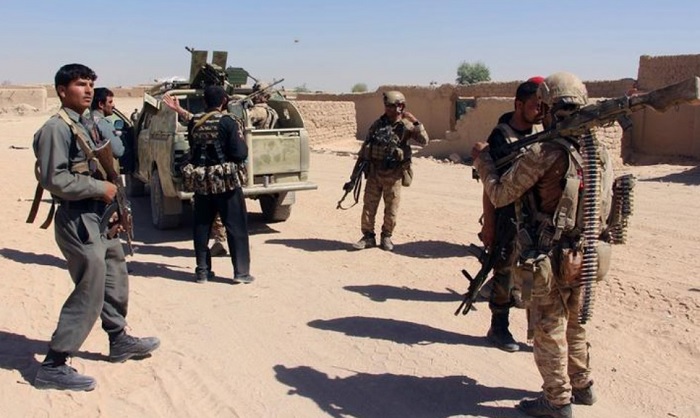Helmand fighting disrupts critical health services: UNOCHA

Heavy fighting in southern Helmand province, near Lashkargah city, has not only displaced thousands of people but it has also interrupted critical health services as clinics have been forced to shut down in some areas, the United Nations Office for the Coordination of Humanitarian Affairs (UNOCHA) said on Thursday.
In an update on the fighting, which broke out on Saturday night when the Taliban launched coordinated attacks across the province, UNOCHA said clashes were reported in Nahr-e-Saraj and Nad-e-Ali districts on Wednesday – two of the areas that have been hardest hit since Sunday.
The UN agency also stated that the highway between Helmand and Kandahar remains closed.
UNOCHA said they were verifying the numbers of displaced people after local authorities estimated 35,000 (about 5,000 households) had been forced to flee their homes earlier this week.
Health clinics in a number of areas have also been affected, the report stated adding that two clinics in Nawa and Bolan closed on Wednesday due to active fighting in the areas while seven other health facilities in Nad-e Ali, Marja, Nahr-e-Saraj, Lashkargah and Nawa also closed down due to threats to health staff.
“Before closing, the health facilities were operating in a reduced capacity, focusing on trauma care only. The closure of the health facilities affects more than 38,000 people in the area and deprives them of access to critical health services,” the report read.
Meanwhile, food distribution to needy households started on Wednesday. The Afghanistan National Disaster Management Authority (ANDMA) handed out food to 120 households (approximately 800 people ), with up to 1,000 additional households (7,000 people) – who have been displaced – expected to receive ANDMA assistance in Lashkargah in the coming days.
Electricity and telecommunication lines are still disrupted in some areas, hindering the flow of information. This has affected people’s ability to communicate and humanitarian partners’ ability to conduct assessments, UNOCHA said.
Meanwhile, the UNHCR will deliver assistance to 600 households (200 tents and 400 non-food item kits).
UNOCHA “is working with clusters to deliver further assistance, including tents, food and water which have been highlighted as immediate needs,” their report stated adding that the World Health Organization will relocate three Mobile Health Teams (MHTs) to provide medical services to the displaced population in Lashkargah city.
